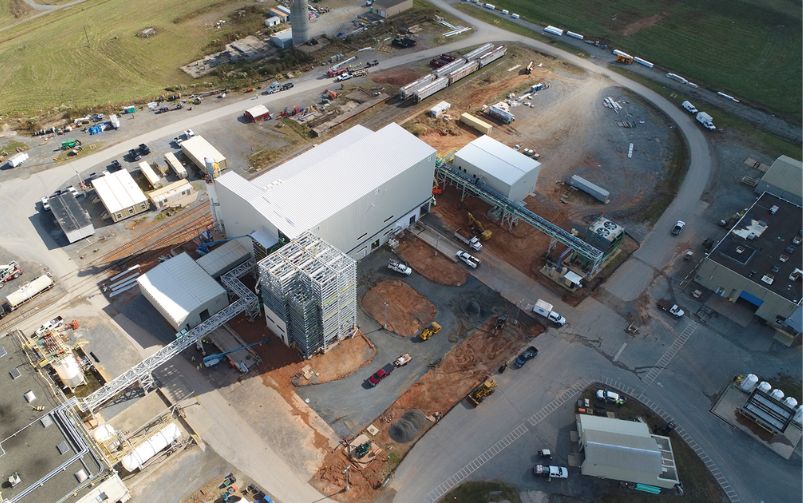(Left to right) Mitch Warner, Philippe Couillard, Nadja Kunz, Ken Rock, David Cataford and Angelina Mehta at the opening plenary discussion.
The theme of the 2023 CIM Convention and Expo in Montreal is “Building Trust to Decarbonize the World,” and this idea was reflected in the opening keynote and plenary panel discussion on May 1.
The keynote speaker, the Arbinger Institute’s managing partner Mitch Warner, focused on how changing mindsets can be a large part of building trust between the mining industry and stakeholders such as local communities and governments.
A key concept he introduced was the difference between an inward mindset – where a person or company focuses on their own needs and objectives rather than the needs of others – and an outward mindset, which takes into account other people’s perspectives. According to Warner, mining companies that shift to outward mindsets can help build trust, effectiveness and performance.
He gave the example of a past client who needed to cut US$100 million out of their budget. “The only way they could accomplish this massive feat was if there was a fundamental shift from an inward mindset to an outward mindset, where other people matter,” said Warner. They reframed it as savings, not cuts, and managed to save the money without eliminating a single job.
Following Warner's keynote, there was a plenary panel discussion moderated by Angelina Mehta, general manager of joint ventures at Rio Tinto Aluminium, with panellists including Warner; David Cataford, CEO and director of Champion Iron; Philippe Couillard, the 31st Premier of Quebec; Ken Rock, general director of Société de développement économique Uashat Mak Mani-Utenam; and Nadja Kunz, assistant professor at the University of British Columbia.
Each panellist spoke about how building trust had benefitted their own organizations; Cataford talked about Champion Iron’s work to build trust with local communities. He described how he used to schedule short meetings with the Innu of Takuaikan Uashat mak Mani-utenam, the First Nation local to the company’s Bloom Lake iron ore mine in Quebec, but the meetings were not productive.
“What we've evolved is a different way of working in the community,” he said. “Now I don't take a one-hour meeting; I take a two-day trip, and I'll spend time with the community to understand what is required and to be able to deliver the message.”
However, he noted that it is not a one-size-fits-all solution, and Champion Iron changes its approach at each project depending on the needs of the local community. “It's by building relationships, and understanding the real needs, that we're able to deliver that accountability,” he said.
Related: New land-use rules are being written across the territories, and while there is currently a period of uncertainty, soon everybody will have a clear picture of where mining fits
Rock stated that people need to understand that Indigenous peoples have been living on the land for a long period of time, but in many cases have not benefitted from activities such as mining. “Things have evolved – 10 years ago we were talking about CSR [corporate social responsibility], and now we’re talking about ESG [environmental, social and governance],” he said. He added that he attended a conference recently that talked about ESGI, which adds the Indigenous perspective into ESG conversations.
Rock said that First Nations want to be partners [with the mining industry] to benefit from mining projects, noting that the forging of these relationships needs to come from upper management such as CEOs “in order to implement a change in demands, mindsets and behaviours to make sure that we benefit out of that activity that we have been too long excluded from.”
Kunz spoke about water’s important role in the relationships between mining companies and communities. “Often when we think about environmental or social issues, we see them as negative or as conflict,” she said. “In the case of water, it's an enormous opportunity. Water is a key issue for many communities, and if we do responsible things from the beginning around water issues, it can help to build trust in other areas as well.”
There are also opportunities around financing, according to Kunz. “We're seeing a huge push from investors to show leadership and to reward companies that are doing well,” she said, including in terms of carbon emissions and water management, but also in broader sustainability drivers.
However, Couillard said a lack of perceived credibility can lead to lower trust in the industry in general. “A lot of data put out by companies is seen as greenwashing, which is negative for the overall movement towards the energy transition,” he said. He noted that measurements, such as of a company’s carbon footprint, can be more trustworthy if they come from an independent source rather than a company’s internal measurements.
He cited the Quebec government setting up an effective carbon trading system as a positive concrete example of a government intervening in the relationship between the mining industry and communities.
Rock linked the discussion back to Warner’s keynote and how the mining industry can move forward. “If you want to develop a trust relationship, you need to learn to get to know each other,” concluded Rock. “The most important thing is respect.”




